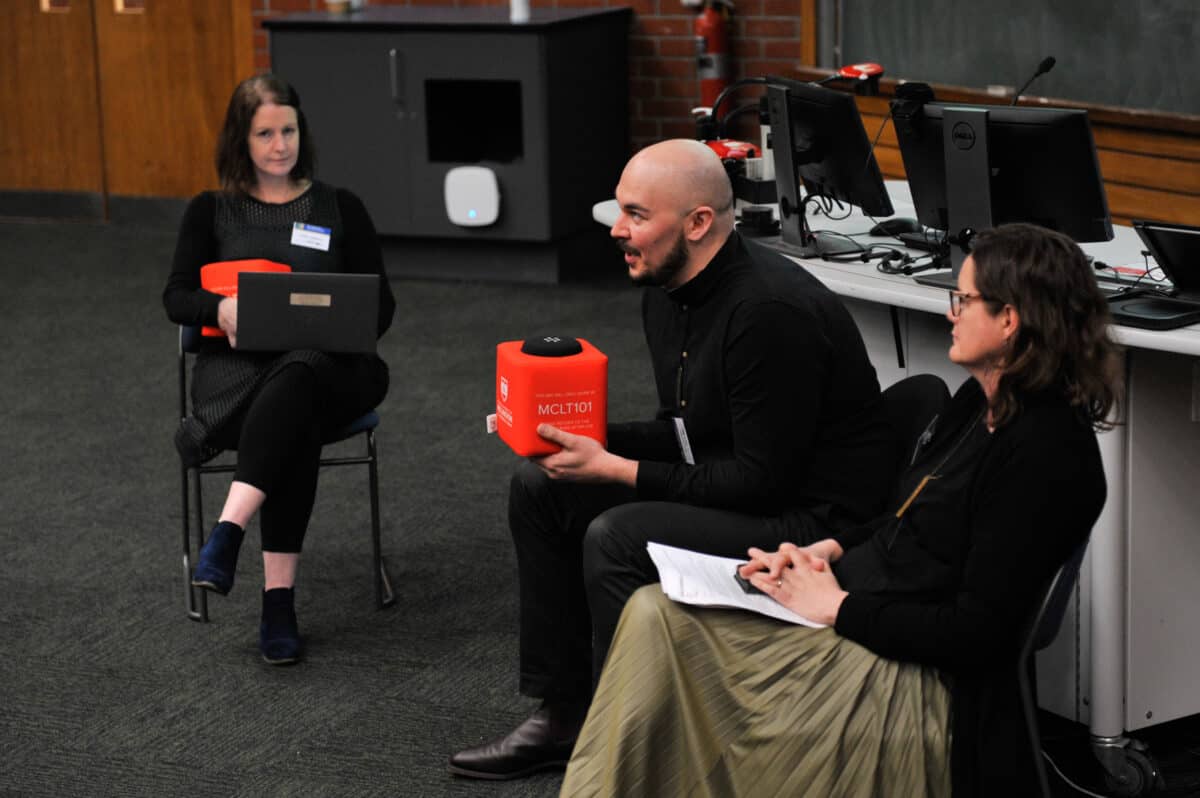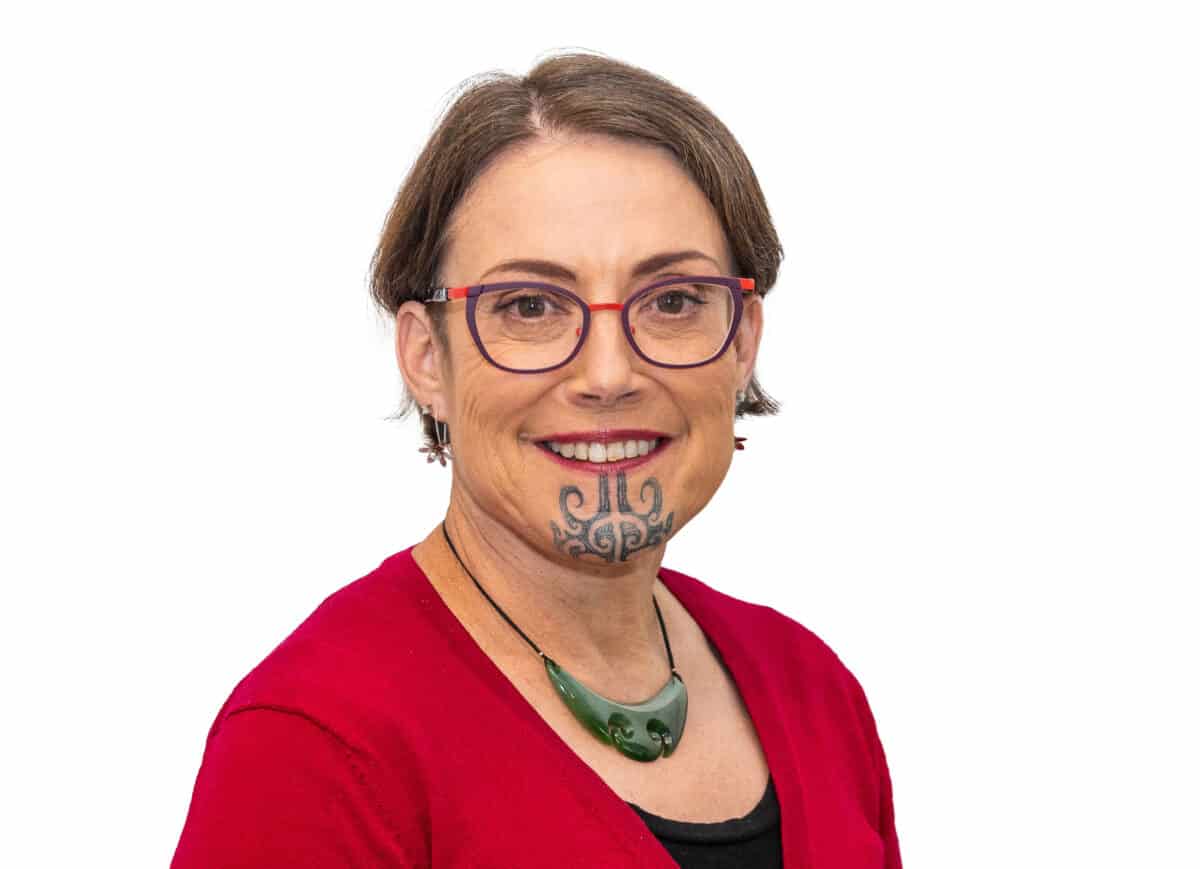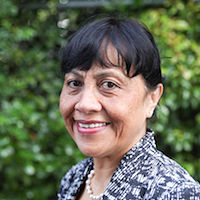Healthier Lives Newsletter July 2023
27 July 2023
In this issue:
- Research Voices: Els Russell
- New Zealand International Science Festival
- Call for a National Food Strategy
- Healthier Lives researchers contribute to WHO guidelines
- Sustainable New Zealand Kai
- Progress towards CGM funding for diabetes
- Upcoming events: EDOR 20th anniversary symposium – new date
- In the news
- Congratulations
- Recent publications

Research voices: Els Russell
The completion of a Master’s in Public Health by Els Russell, as part of the Healthier Lives – Ageing Well ACTIVATION project, has enabled the lived experience of Māori in social housing to be heard.
This research has important implications for equitable social housing policy, with findings that are not only important for Māori but are beneficial for everyone.
New Zealand International Science Festival

Scientists from around the country converged on Dunedin in the first week of July, to share insights from their National Science Challenge (NSC) research with members of the public at the 2023 New Zealand International Science Festival. NSCs are entering the final year of a 10-year programme so there were plenty of ideas and research findings which audience members were keen to discuss.
Call for a national food strategy

The Directors of six National Science Challenges want to use their combined research findings and expertise to inform a National Food Strategy.
A growing number of groups from both public and private sectors are calling on the New Zealand government to develop a food strategy, with many comparable countries already having such a plan in place.
Food plays a central role in New Zealand’s economy and has major impacts on our health and environment, with food production being a significant contributor to greenhouse gas emissions. Concerns about the cost and availability of food, and the effects of climate change on our weather systems, underscore the need for a strategy addressing the interconnectedness of these factors.
Over the last nine years, National Science Challenges have produced a wealth of research evidence across multiple domains and are therefore uniquely placed to help underpin a science-informed National Food Strategy.
Healthier Lives researchers contribute to WHO guidelines

The World Health Organization (WHO) recently updated its guidelines on fat and carbohydrate intake, with contributions from Healthier Lives Director Jim Mann, andprinciple investigator Andrew Reynolds.
The new guidelines incorporate the latest international dietary evidence and emphasise the importance of limiting total fat intake to reduce excess weight gain, and limiting saturated fat intake to lessen the risk of heart disease.
When it comes to carbohydrate, the amount is not as important as the type of carbohydrate. The new WHO advice recommends that the carbohydrates we eat come primarily from whole grains, vegetables, whole fruits and pulses.Healthier Lives Director Professor Jim Mann was interviewed by Dale Husband of Waatea News, talking about what is new in the WHO guidelines and what the Government can do to create a healthier food
Sustainable New Zealand Kai
Members of the Healthier Lives Sustainable New Zealand Kai project team recently presented some of their early results at the 2023 Climate Health and Sustainable Healthcare in Aotearoa conference, which took place in Wellington on the theme of ‘Taiao. Tangata. Hauora. Advancing Planetary Health’.
Team members Dr Cristina Cleghorn, Dr Christina McKerchar, Dr Hemi Enright and Bruce Kidd featured on a panel entitled ‘Feeding the mauri – kai and food systems’. They enjoyed sharing project stakeholders’ perspectives about sustainable kai, and linking the project’s findings to wider food system and nutrition challenges for New Zealand.
The Sustainable New Zealand Kai project is gathering rich qualitative data on what sustainable kai means to various stakeholders, and the policies that could be implemented to create a shift towards a healthier and more sustainable population diet.

2023 Climate Health and Sustainable Healthcare in Aotearoa conference
Progress towards CGM funding for diabetes

Healthier Lives supports the Diabetes New Zealand #WeWontStop campaign, which calls for all those in Aotearoa New Zealand living with diabetes who are using insulin to have funded access to the global standard of care. This includes continuous glucose monitors (CGM) to help manage diabetes and avoid complications.
Pharmac have subsequently announced a request to suppliers for proposals to fund CGMs, insulin pumps and consumables. Bids for this procurement process close mid-August, with implementation expected sometime in 2024.
Exactly who will be eligible for these devices is unclear, but this is a huge step forward only eight months on from Transforming Lives: 100 years of insulin, at which Diabetes New Zealand, Healthier Lives and the Edgar Diabetes and Obesity Research Centre urged the government to fund CGM for all who need it.
Pharmac CGM procurement status
Transforming Lives: 100 years of insulin
Upcoming events

Register now for EDOR’s 20th anniversary symposium
Friday 24 November
Hutton Theatre, Tūhura Otago Museum, Dunedin.
Please note that the date of this event has been changed since the save-the-date notice in the last Healthier Lives newsletter.
The Edgar Diabetes and Obesity Research Centre (EDOR) is based in the Department of Medicine at the University of Otago. Healthier Lives works closely with EDOR on our shared goals to address the obesity and type 2 diabetes pandemics.
EDOR is celebrating 20 years as a Research Centre by holding a symposium on Friday 24th November, with presentations on type 1 and type 2 diabetes, nutrition, food environment, sleep and obesity. The event will also highlight EDOR’s future vision that prioritises equity and working with communities to create meaningful change.
The keynote speaker for this event, Professor Mike Lean (University of Glasgow), will talk about his groundbreaking work on the remission of type 2 diabetes using the DiRECT clinical protocol, a dietitian-supported weight loss programme using meal replacement diets. This approach is being rolled out to all eligible people with type 2 diabetes in England by March 2024.
Healthier Lives is funding a New Zealand trial of the DiRECT protocol to determine the cultural acceptability of the programme for Māori and Pacific whānau.
All are welcome to attend this free event and you can register on the EDOR website.
In the news

‘Game-changing’ cancer detection test
Southland patient advocates Melissa Vining and Julia Black set up the charity “Hope Without Fear which aims to fundraise $1 million to advance Healthier Lives research on a non-invasive blood test to detect bowel cancer. Early detection would be a “game changer” for patients, which could see bowel cancer becoming a manageable chronic condition in future rather than a deadly disease.The blood test is built on seven years of research led by Healthier Lives Deputy Director Professor Parry Guilford (pictured).
Otago Daily Times: ‘Game-changing’ cancer detection test in development
Healthier Lives project: ctDNA for better cancer care
WHO evidence-based report on red and processed meat consumption: eating less is better!
A recent article in The Conversation explores evidence about the impact of red meat consumption on health, environment and biodiversity, and how we can mitigate these effects. The article is based on a recently published World Health Organization information brief, to which Healthier Lives researcher Dr Andrew Reynolds has made an important contribution.
The Conversation: Talking about eating less red and processed meat provokes strong feelings
World Health Organization information brief

Rural residents have higher death rates than those in urban centres
New research from the University of Otago shows that people living in rural areas of Aotearoa die at higher rates than those living in main urban centres, with rural Māori having even higher rates. This research “has important health policy implications in a country where rural health outcomes have been assumed to be as good, if not better, than those in urban areas,” said study co-author and Healthier Lives principle investigator Professor Sue Crengle. “Understanding these differences … means we have an opportunity to develop strategies and health service interventions that are targeted,” she said.
Otago Daily Times: Mortality rates found to be higher in rural areas
Aussies seek junk food ad ban
Australia is the latest of around 40 countries that are considering or have already introduced legislation to ban the advertisement of junk food to children. In New Zealand, where one in three children are obese or overweight, this legislation is still lacking.
Otago Daily Times: Aussie to push for junk food ad ban

Congratulations
We warmly congratulate Healthier Lives co-principal investigator and emeritus Science Leadership Team member Dr Ofa Dewes (University of Auckland), who was appointed a Member of the New Zealand Order of Merit for services to health and the Pacific community.
Recent publications
Rosin M, Mackay S, Gerritsen S, Te Morenga L, Terry G, Ni Mhurchu C. (2023). Barriers and facilitators to implementation of healthy food and drink policies in public sector workplaces: a systematic literature review.Nutrition Reviews.
Reynolds AN, Hodson L, de Souza R, Pham HTD, Vlietstra L, Mann J. (2022). Saturated fat and trans-fat intakes and their replacement with other macronutrients: a systematic review and meta-analysis of prospective observational studies. World Health Organisation;
ISBN: 978-92-4-006166-8.


